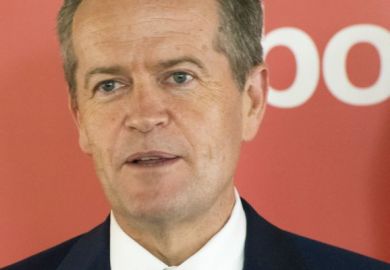In every sector there are examples of employers doing their best to protect staff in the wake of the coronavirus − but stories also abound of those who have shown little regard for their employees’ welfare. The higher education sector appears to be no different.
In the UK, the University of Sheffield has been praised for its handling of fixed-term staff, who faced being let go when their contracts ended. Where they were able to work from home, Sheffield said their work and pay would continue. For those who could not, or whose ongoing work has not been confirmed, the university will furlough them and top up 20 per cent of their salaries.
Similarly, King’s College London has extended for a further three months the contracts of all staff whose contracts were due to end. The institution also gave two extra days’ leave to all staff this week “to rest and recharge”.
At Queen Mary University of London, after initial reports of staff being asked to “check in” while working from home and to use holiday days for childcare, the institution backtracked and has seemingly taken positive steps to support staff.
This includes providing them with two “revitalisation” days, which staff could use as they wish. One lecturer at the university told Times Higher Education that although some staff would baulk at the implication that “we’ll be primed to provide ‘business as usual’ labour after our ‘revitalisation’, it does show an awareness of…issues around well-being and emotional health”.
However, the picture is not so rosy across the whole sector. The University of Portsmouth came under fire for pushing ahead with plans to sack eight English literature lecturers, but has since said it had postponed the move; the University of Kent has stalled a redundancy exercise but apparently plans to begin again in May; and the University of Sussex has called for the “review of all temporary agency staff arrangements”.
Jo Grady, general secretary at the Universities and Colleges Union (UCU), said postponing redundancies to a later date simply meant staff were now working “with an axe over their head” in the midst of a global crisis and that UK universities had taken a “scattergun approach” to how they treat staff.
This was exemplified by Newcastle University, which received praise for announcing the introduction of a four-day week, without lowering salary, to help ease pressure on staff, particularly those looking after children. However, shortly afterwards, staff on fixed-term contracts received redundancy notices. The university has since said anyone whose contract is due to end before the end of July will have their contracts extended until 31 July and this will “supersede any letter” they may have received. “We have worked really hard as a university to put staff first,” a spokeswoman said.
“In some ways, the varying ways the sector, even within one institution, treats their staff reveals the dysfunctionality of the sector,” Dr Grady said. “If some universities can take a compassionate approach, why can’t others?”
The fractured picture is similar across the globe. In Australia, the National Tertiary Education Union (NTEU) has even published a “score card” rating universities on how well they are looking after staff.
It shows that many, such as the University of Wollongong and Charles Darwin University, have provided little or no assurances for secure or fixed-term staff.
The Australian National University, however, has been commended for reducing workload for staff working at home, providing extra paid leave, and extending this support to, as well as the contracts of, casual staff.
In the United States, colleges and universities have taken a variety of positions on staff redundancies and pay reductions in the wake of coronavirus.
“We have seen substantial layoffs of staff, principally at small, private colleges and universities. These institutions operate at close margins and typically have been experiencing financial pressure for many years,” explained Steven Brint, a professor of sociology and public policy at the University of California, Riverside.
According to a recent survey, four out of five presidents of schools with enrolments of 5,000 or fewer students have instituted or are considering layoffs. Public universities are not yet at the end of their fiscal years, and staff jobs are safe through to the end of the academic year, but few are making promises about the 2020-21 academic year, and many have put a freeze on salaries and searches, Professor Brint said.
The relief bill passed by Congress will not be enough. “To stabilise the system, we’ll need to see a stronger response from government,” Professor Brint explained.
The need for better government support was echoed widely by higher education unions. In Australia, the NTEU has called on its federal government to improve financial aid to the sector, while in the UK, the UCU has written to the Department for Education, calling on the government to underwrite funding and protect jobs.
For Dr Grady, the virus might cause a rethink of the marketised and competitive incentives that drive higher education. “Covid-19 has shown just how vulnerable the sector is and how reliant universities are on student fees, particularly international fees…but if we find a vaccine or we train more doctors and nurses − that comes from universities, [and] they and their staff have to be properly funded,” she said.
POSTSCRIPT:
Print headline: Vast differences in treatment of staff
Register to continue
Why register?
- Registration is free and only takes a moment
- Once registered, you can read 3 articles a month
- Sign up for our newsletter
Subscribe
Or subscribe for unlimited access to:
- Unlimited access to news, views, insights & reviews
- Digital editions
- Digital access to THE’s university and college rankings analysis
Already registered or a current subscriber? Login







